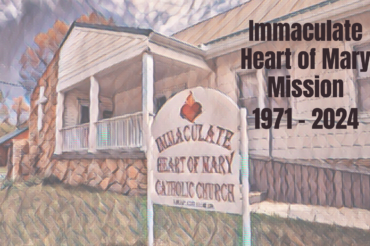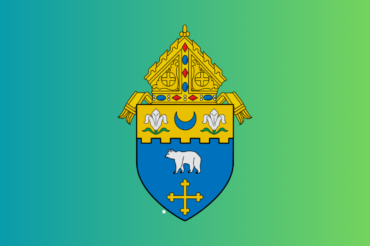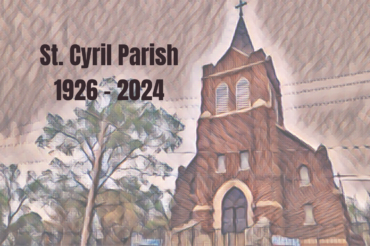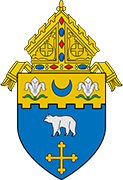Epiphany Values
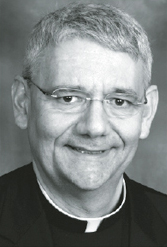
Fr. Joseph Cisetti, pastor of St. Therese, North
On the beautiful celebration of the Epiphany we met the Magi, those mysterious, gift-bearing people from the east, who came from afar to pay homage to the newborn Christ. They followed a star, they came to worship, and Christ was shown forth not just to the Jewish people but to the nations.
The word, epiphany, literally means manifestation, the showing forth of Christ to the world. At Christmas Jesus is born, but at Epiphany Jesus is shown forth to the nations. And yet underlying this beauty there dwells hidden darkness. When Herod realized the Magi were not coming back to him, he reacted with great violence and cruelty.
This celebration reminds us that Jesus came not for one tribe, not for one nation, but ultimately, for all people. Each of the readings for Epiphany makes this point. One of the many values that the Epiphany reveals is that God’s love is universal and the word, catholic, literally means universal.
In my own parish of St. Therese, more than thirty countries from five different continents, are represented, and that starts to reveal the universality of the Church. On the cross, Jesus stretched out his arms to embrace the whole world.
The Magi come at the beginning of St. Matthew’s Gospel and at the conclusion of this Gospel, after his resurrection, Jesus will tell the apostles to go out and to teach all nations, not just some nations, but all nations, and to baptize them, to bring them into the family of God. This universal dimension of God’s love, the invitation to all to become part of the Kingdom, the call to repentance and conversion, are for all. These are all Epiphany Values.
Once you understand these values, you can better understand what conflicts with them. In other words, start with what is right and then you can better see what is wrong. While there are Epiphany Values, underlying the beauty of this celebration, there are also many anti-values that contradict what this feast celebrates. What are some of the anti-values?
Racism is an anti-value that contradicts the Epiphany. Racism looks to what a person is rather than who a person a person is. The Catechism of the Catholic Church, goes so far as to describe racism as a type of idolatry that can take the place of God in our lives. [CCC 2113]
The disrespect for human life, both born and unborn, at every stage and at every age is an anti-value that contradicts Epiphany values. Jesus will say that he has come that we might have life and have it more abundantly. Each human life is created in the image and likeness of God, but furthermore, as the Second Vatican Council noted, through Jesus’ human birth, he has, in one way, united himself with every human person. Pope Francis has wryly observed that it is not progressive to try to resolve problems by eliminating a human life.
To disrespect the lives of the unborn, the terminally ill and the severely disabled, contradicts the values of the Epiphany. To exploit workers, the poor, the stranger, the undocumented, the refugee and the vulnerable, disrespects human life and contradicts the values of the Epiphany.
The list of anti-values goes on but there is one that seems to be spreading around the world and it is called nationalism. Now there is critical distinction to make between patriotism and nationalism.
Patriotism is a virtue. St. Thomas Aquinas taught that patriotism is a type of piety. Patriotism realizes that after God and our parents, we are debtors to society. There are many people in our diocese and in every diocese, who have shown their patriotism. Obviously, we think of those who are honorably serving or have honorably served in the armed forces but also of many others who have exercised this virtue in many other ways.
Who we are as a nation unites us with our fellow citizens but who we are as disciples of Jesus, unites us with believers around the world. Who we are in terms of our common humanity unites us with all people.
Nationalism takes something good like patriotism and twists it into an idol that takes the place of God. Nationalism throughout the world becomes an impediment to peace, stability, human solidarity and the common good. Nationalism rejects the universal character of the Epiphany and is also a place where racism can rear its ugly head.
Speaking to the United Nations in 1995, St. John Paul II, who personified patriotism to his native Poland, clarified what he called, . . . an unhealthy form of nationalism, which teaches contempt for other nations or cultures, and patriotism, which is a proper love of one’s country.
He went on to insist that, Nationalism, particularly in its most radical forms, is . . . the antithesis of true patriotism, and that it can give rise to totalitarianism. In its extreme forms, nationalism based on fear, like Herod, reacts with violence and cruelty. We are called to love our parents, but we do not love our parents by hating someone else’s parents.
As the Magi stepped out in faith looking for Jesus, so may we follow him with lives of intentional faith. As the Magi opened their treasures before the infant Jesus, so may we open before him the treasures of our lives in what we have and who we are. May we respond to his universal love in every little way and in a universal way.
In the Eucharist, Jesus opens up the treasures of God’s love to us as he continues to give himself to us under the form of bread and wine, so that we can be strengthened to be signs of his love, not just to one group, or one country but to all whom we meet.
May we see and serve him in others and by his grace may others see him in us. May we reject anti-values and share with all whom we meet, the love God extends to all. May we embrace, share and live, Epiphany Values.


